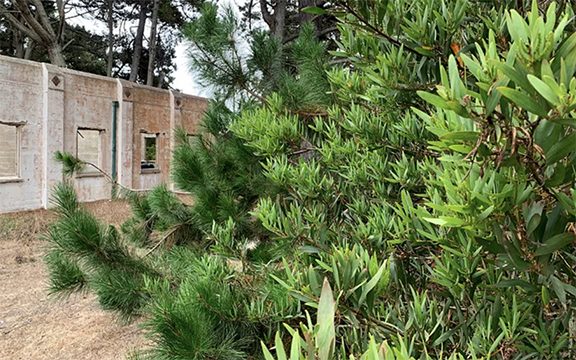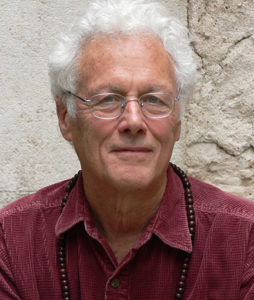
Photo by Kyra Epstein
How do we live in this time? It is a question I ask myself again and again. For many, there is little choice. It is a time of such anguish for uncounted millions around the world. But what of those of us who have a sufficiency? Food, a roof over our heads, a bed, a safe place. What of those of us whose primary suffering, other than the sorrows of our own personal lives, is grief at the fate of the earth?
How do we live?
There can be no single answer. Often our own private joys or sorrows are sufficient to displace our anguish over the Great Suffering. Yet suppose we have some margin of choice? Is it ethically obligatory to spend our lives in mourning? Or must we devote all our energies to the fight for what is right and good? Or is there the possibility of a balance? Of doing what we can to save what can be saved—and enjoying as much as we can of the infinite beauty of what has not yet been taken away?
Jeff Foster wrote this:
“You will lose everything. Your money, your power, your fame, your success, perhaps even your memories. Your looks will go. Loved ones will die. Your body will fall apart. Everything that seems permanent is impermanent and will be smashed. Experience will gradually, or not so gradually, strip away everything that it can strip away. Waking up means facing this reality with open eyes and no longer turning away.
“But right now, we stand on sacred and holy ground, for that which will be lost has not yet been lost, and realizing this is the key to unspeakable joy. Whoever or whatever is in your life right now has not yet been taken away from you. This may sound trivial, obvious, like nothing, but really it is the key to everything, the why and how and wherefore of existence. Impermanence has already rendered everything and everyone around you so deeply holy and significant and worthy of your heartbreaking gratitude.
“Loss has already transfigured your life into an altar.”
For me, this feels like truth. My only caveat is that perhaps in our losses we may also gain something. Something possibly lasting. I don’t hold that as a promise but as a possibility. A possibility that has felt more and more real to me as my life has unfolded.
It has to do with the Mystery of what takes place after death. It has to do with our capacity to taste that Mystery even in our present lives. It has to do with the great Hindu prayer:
Lead us from the unreal to the real,
From the darkness to the light,
From the fear of death to the knowing of immortal life.
We will differ about the truth of this. James Taylor sings:
There’s a song that they sing when they take to the highway,
A song that they sing when they take to the sea,
A song that they sing of their home in the sky,
Maybe you can believe it if it helps you to sleep,
But singing works just fine for me.
Whatever unfolds after we breathe our last, Foster remains right—our losses do hold the ability to transform our lives into altars. But to what Gods are these altars dedicated? That is where I am grateful for the Gods of nature, of culture, and of the inner life. The Gods that we can for a certainty know and touch in this lifetime. And, I would add, the Gods of friendship, of community, of whatever wisdom we can discover, and for the infinite blessing of love.
I deeply believe in dedicating ourselves to acts that make a difference. To act, especially in community, to serve as best we can, seems to me an inescapable part of the good life. What I don’t believe in is clothing ourselves in the garb of mourning when so much that is precious and beautiful has not yet been taken away—either in our personal lives or in the infinite fragile beauty of the creation.
When death comes, Francis Weller reminds us, let it find you alive. I would take that to mean not only for our personal deaths, but for the other great losses that surround us. Let us indeed fight with every skill and energy we have for a better world. Let us live in gratitude for whatever has not yet been taken away. And let us hope—and pray—that we will, after all, find our way to a better and more just world. Let’s ask for that miracle.
About the Author:
 Michael Mitra Lerner, PhD is a longtime member of the Integral Yoga sangha. He is the president and co-founder of Commonweal. His principal work at Commonweal is with the Cancer Help Program, Healing Circles, Beyond Conventional Cancer Therapies, the Collaborative on Health and the Environment, and The New School at Commonweal. He was the recipient of a MacArthur Prize Fellowship for contributions to public health in 1983 and is author of Choices in Healing: Integrating the Best of Conventional and Complementary Therapies (MIT Press).
Michael Mitra Lerner, PhD is a longtime member of the Integral Yoga sangha. He is the president and co-founder of Commonweal. His principal work at Commonweal is with the Cancer Help Program, Healing Circles, Beyond Conventional Cancer Therapies, the Collaborative on Health and the Environment, and The New School at Commonweal. He was the recipient of a MacArthur Prize Fellowship for contributions to public health in 1983 and is author of Choices in Healing: Integrating the Best of Conventional and Complementary Therapies (MIT Press).

